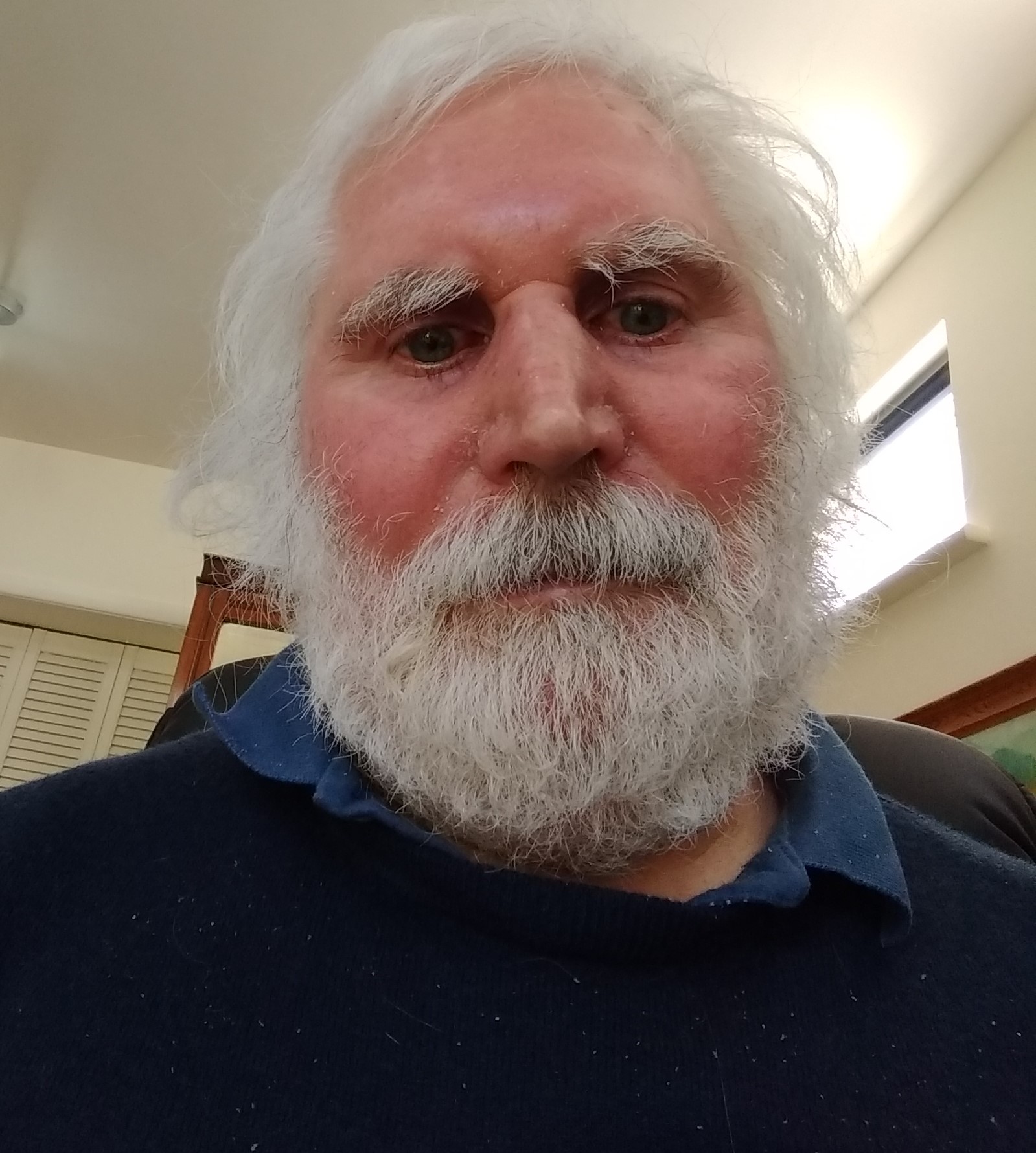Professor James Moffat—Jim to his friends—grew up as a working-class kid in the industrial heartland of Scotland during the 1950s.
Life was hard and money was tight. His mum ran the house and looked after the family. Shillings were used for the gas meter and tokens for the milk delivered to the doorstep. His dad started his working life as an accounts clerk with a local steel company. Jim was destined for a job as a miner or similar. What saved him was a gift for understanding Mathematics. When he retired in 2015, Jim was one of the Government’s most senior scientists, offering expert advice on defence policy based on mathematical modelling. Sadly, during his retirement, Jim received a diagnosis of PSP. Jim talks about how he has adapted to the limitations imposed on him by his condition and why it is so important to continue to do what you love.

Jim said:
“I always had a gift for maths and enjoyed applying it to real-world problems. My brother and I were the first in our family to go to university—catching the bus into Edinburgh every day. After my degree from Edinburgh I won a Carnegie scholarship to do a PhD in quantum theory at Newcastle University from 1971 to1974—a subject that I loved. However, I also wanted to do something useful for society.
“I joined the Ministry of Defence in 1974 at the height of the cold war. From my first day at the Ministry (located just across Whitehall from 10 Downing Street) life changed. I was no longer preoccupied by normal day-to-day things and my full attention was focused on the pressure steadily building in Europe between NATO and the Russian empire east of the ‘iron curtain’. I was part of a small policy team providing scientific advice to the military. I then did a variety of things with the Ministry, including working on stealth technology at the Royal Aircraft Establishment, in Farnborough.
He continued:
“While extremely rewarding, after 41 years of work I was greatly looking forward to retirement and spending more time with my wife Jacky and our family. I have two lovely daughters and we often get together as a family . By the time I retired I still felt fit and well, and was starting my new research Professorship in the Department of Physics at the University of Aberdeen–commuting by email! However, towards the end of the year, my health started to concern me. I went to the GP with difficulty walking and what I thought was a bad hip. When I explained to my GP how my foot dragged and my feet felt sticky he immediately suspected it was neurological and referred me to a consultant neurologist.
“I received a diagnosis of Parkinson’s. As devastating as it was to hear the diagnosis, I remained calm. I’m a very logical person and decided I was going to find out everything I could about the condition. By 2017, I’d been taking medication for Parkinson’s for over a year, but it was having no impact on my symptoms.
“After some research, I came across PSP and wondered if, in fact, that was what I had. My wife and I went back to the neurologist and asked if the reason the drugs weren’t working was because I actually had PSP, not Parkinson’s. He agreed it should be further investigated. The result of those investigations was that I did indeed have PSP. I remember asking the question ‘how long do I have?’. I was told the average time from diagnosis to death was seven years. I’d already unknowingly lived with PSP for four years, leaving me with possibly just three more. However, I also knew I had to continue to live the best life I could.
“In those early days of diagnosis, I found Health Unlocked an invaluable source of information, especially when we were looking at getting a stairlift. Having access to people also living with PSP on practical matters was incredibly useful. However, I find when people talk about dying depressing. I don’t want to focus on that. I want to focus on living.
“PSP has taken away my ability to do many of the things I previously enjoyed, like walking. I soon realised to make the most of the life I had to adapt to the condition.
“It was important to me that I continued to use my brain although denied the alpine walking holidays my wife and I once enjoyed.
“My local hospice has been very good and I go there every Monday to paint. This isn’t something I ever had much time for when I was working, but it’s something I really enjoy. It’s also good to be in the company of other people from all sorts of different backgrounds.
“I’ve also found refuge in my work at the University of Aberdeen where I am currently researching quantum gravity and writing academic papers–using a laptop–on unifying relativity and quantum theory. Writing academic books has provided me with a lifeline and something to get out of bed for. I recently applied to the Institute of Physics with an idea for a book on quantum gravity. They commissioned me to write it, with a deadline of Christmas 2020.
“I’m much better in the mornings, so most days I get up at 5am and work on my book until 10 am when I have breakfast. We converted a downstairs room into a sleeping and workspace with attached wet room, large doors looking out onto the garden and my desk and computer. This environment helps me continue to do what I love.
“I also very much enjoy playing chess online. Chess is a game that is very simple in terms of moves, but also very complex. I can play a good game with someone in Hong Kong for ten minutes and then get on with the rest of my day. It is another activity I enjoy that is not yet affected by PSP. I have a big screen on my mobile phone—more like a ‘phablet computer’ and that helps.
‘’For me, maintaining my personal and professional connections keeps me feeling alive. This is how I fight PSP. I can’t and won’t let it get me down. Both Jacky and I take each day as it comes and try not to look too far ahead.
“The principles of medical research are much the same as in physics. Once you know how things work you can improve them. Researchers need to find out why people get PSP in order to understand how to tackle it. Something I very much want to see in my lifetime.”
What is quantum gravity?
Quantum theory (also known as quantum physics or quantum mechanics) is one of the two main pillars of modern physics, along with general relativity, and between them the two theories explain a lot about our universe. General relativity gives us our picture of the very large (space-time and gravity), while quantum theory gives us our picture of the very small (atoms and their constituents) as well as all of the ‘solid-state’ electronics we now take so much for granted.
During the very early evolution of the universe, it was small, very hot and very dense. Our two pictures need to be combined together—a mathematical puzzle that has kept some us awake at night. In terms of the early evolution of space-time and gravity, the key relativistic property is the spin of the electron; which is a consequence of combining locally flat space-time and quantum theory. In the approach laid out by me, discrete steps across a network of such entangled spins form the basis of space-time and are the foundation on which more elaborate constructs can be established.

